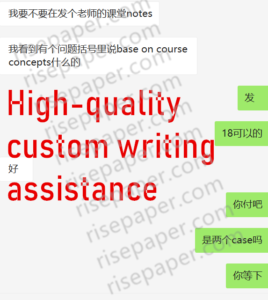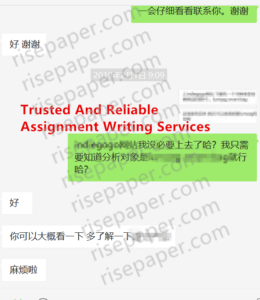典型的商科科目

留学顾问の QQ:2128789860
留学顾问の微信:risepaper
You are required to write an essay on the topic of Hofstede’s model of cultural distance. The essay assignment contains three tasks:
Critically evaluate 代写Hofstede’s model of cultural distance. Your critical evaluation should be based on your reading of academic journal articles on the topic. An indicative list of articles can be found on My Reading List. You should aim to read a range of scholars’ views on the strengths and weaknesses of Hofstede’s model and the impact/influence it has had on the work of other academics. Description of the model is not required; instead make sure you focus on critical analysis.
Identify and present examples of ONE brand’s advertising which has been adapted to fit TWO different countries. Use Hofstede’s model to analyse the adaptations that have been made to the brand’s advertising. Use television, video or film advertisements, not print or outdoor. Capture a series of images from the advertisements and analyse the adaptations made between the two countries in relation to the countries’ Hofstede profiles.
Your essay must include as an appendix a reflective statement of minimum 250 words focusing on how you improved your referencing and academic practice as a result of submitting in advance via Turnitin and analysing your Turnitin Originality Reports. In order to write your reflective statement, you must upload at least two drafts of your essay to Turnitin before making your final submission. Analyse the Turnitin Originality Reports produced and evaluate the quality of your academic writing and referencing. You must include all your Turnitin Originality Reports in this appendix.
Hofstede tried to find an explanation for the fact that some concepts of motivation did not work in the same way in all countries. Hofstede based his research on an extensive IBM database from which – between 1967 and 1973 – 116,000 questionnaires (from IBM employees) were used in 72 countries and in 20 languages.
According to Hofstede代写, the way people in different countries perceive and interpret their world varies along four dimensions: power distance, uncertainty avoidance, individualism and masculinity. The last two dimensions were found later, and in different studies: time perspective and indulgence.

